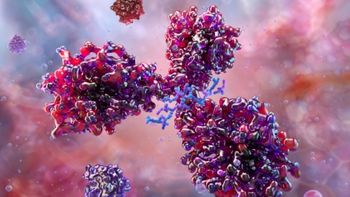
- BioPharm International-02-01-2018
- Volume 31
- Issue 2
Maintaining Lab Data Integrity
This article explores lab data integrity violation trends, as well as a sampling of the latest technologies that can help avoid them.
In recent years, data integrity in analytical laboratories has become a major concern for both pharma companies and regulators. Common violations detailed in recent FDA warning letters (1-5) include incomplete or inaccurate data from various laboratory tests. More specifically, factors such as inconsistent audit trails, disconnect between various electronical data management systems, quality inadequacy, as well as human error and manipulation have led many companies down a path of noncompliance. The prevalence of such violations emphasizes the growing focus on data integrity from regulators.
Companies are now faced with the challenge of streamlining digitized data integrity methods in the lab by understanding both the level of accountability necessary from personnel who use these systems in addition to recent technological advances, according to Steve Hayward, product marketing manager at BIOVIA, Dassault Systèmes (see
To address current lab data integrity violations and prevent new ones, it is important to stay up-to-date not only on regulatory standards, but on the latest technologies available to help companies meet these requirements. Below is a sampling of products to help maintain data integrity in the lab.
Compliant-ready LIMS
FDA’s Data Integrity and Compliance with CGMP states that it is unacceptable to store data electronically in temporary memory, and advises companies to design a laboratory information management system (LIMS) or an electric batch record system to automatically save each separate entry (6).
LabVantage 8.3 from LabVantage Solutions is the latest version of the company’s LIMS (7). The system features a dynamic auditing function to aid in the GxP-compliant management of data in temporary memory. The function also helps to maintain a complete audit trial based on a full history of analytical testing, including temporary and permanent data, changes between temporary and permanent data entries and the reason for the change, identity of the user entering the data, date and time of data entry, as well as electronic signatures and mandatory reason for changes.
Other system features include improved reagent integration within the advanced batch control module; additional improvements to array and plate handling, specifically with persistent auditing on reasons, activity, and electronic signatures; and better storage explorer capabilities to search for open and empty spaces for new samples.
Additionally, the company has expanded its inventory of Laboratory Execution System (LES) Worksheets, which can help streamline electronic record-keeping. In addition to the existing LES worksheets based on test methods, the new worksheets are available for quality control (QC) batch testing, instrument certification, and finished product sample testing, which can facilitate the review of multiple analytical tests on a single sample, according to the company.
Another applicable tool is LabVantage’s Chemical Viewer, which has been added to the company’s electronic laboratory notebook (ELN) and LES. Users can upload a chemical file to a chosen location or copy it into the control system. The viewer offers a modifiable graphic rendering of the chemical structure defined in the file.
Informatics software update
ACD/Labs has added new updates to its ACD/Spectrus Platform, the company’s suite of informatics software products (8). Version 2017.1 provides improved functionality to a range of solutions, including MetaSense, the company’s metabolite identification software. It also introduces Luminata, a new solution for the management of impurity data, according to ACD/Labs.
The updated software includes expansions and improvements for the ACD/Spectrus, an instrument format support across analytical techniques. A new liquid chromatography/mass spectrometry deconvolution algorithm for high-resolution mass spectrometry data also includes usability-improvements. Additionally, tools for analyzing samples by nuclear magnetic resonance and mass spectrometry have been enhanced.
According to ACD/Labs, the company’s metabolite identification software has been updated to bring new metabolic pathways into the prediction algorithm and provides easier navigation of data in ways that are better aligned to scientists’ workflows.
The new Luminata solution enables organizations to establish effective impurity control strategies through the assembly of analytical, chemical, and process information in a single enterprise informatics environment, following quality-by-design principles, as stated by the company.
Software supports regulatory compliance for microbiology QC labs
The latest version of Lonza’s MODA-EM software enables microbiology QC laboratories to comply with the latest regulatory guidelines (9). Version 3.3 of the software meets daily challenges faced by QC laboratories with additional features focusing on data integrity, data visibility, and data review, creating an improved workflow experience with enhancements in analytics and reporting, according to Lonza.
Including a streamlined application and a risk-based validation solution, the paperless software has a fully searchable audit trail that allows scientists to track changes made through a sample’s lifecycle and saves time on routine activities such as settling plate exposure times, organism identification, and master data management and review, according to a press release statement by Sinéad Cowman, European Union business development manager for Lonza Informatics.
Additionally, the software features improved scheduling and calendar capabilities for simplified sample management. It also offers web-based dashboards so that metrics and results can be accessed from anywhere with an Internet connection, as stated by the company. According to Lonza, scientists in QC laboratories are also supported with a validation documentation package that meets current industry standards and regulatory requirements, with execution and pre-validated service options available.
Synthetic chemistry offering to cloud-based R&D platform
IDBS has added a synthetic chemistry offering that extends its E-WorkBook Connect cloud-based platform, part of the company’s E-WorkBook Cloud, an R&D cloud platform that supports internal, external, and hybrid data management and research needs (10).
With the now-extended E-WorkBook Connect, organic chemists can share data externally and collaborate with partners using a secure work space. Additionally, chemists are provided with the ability to transfer all experimental data to an on-premise or hosted E-WorkBook environment.
While some contract research organizations are allowed direct access to a secure corporate ELN, others are mandated to maintain a local installation of the desktop ELN. Both approaches are an additional overhead that IDBS’ platform resolves, according to the company.
“Extending the capabilities of E-WorkBook Connect with stoichiometry, to support synthetic organic chemistry, addresses the data management challenges and costs associated with collaborative research, especially when it comes to communication,” said Ian Peirson, head of product planning at IDBS, in a company press release.
“The advantages are clear: with our technology, a simple email invitation process sets up a secure workspace with a collaborator, and this then enables both sides to view progress, and complete the transfer of all information and metadata to supplement the internal corporate knowledge base,” Peirson added.
Automation workstation for clinical and regulatory compliance
Tecan, a provider of laboratory instruments and solutions in biopharmaceuticals, forensics, and clinical diagnostics, announced in a Jan. 25, 2018 press release that it will add the Fluent Gx Automation Workstation for clinical and regulated laboratories to its range of liquid handling solutions in 2018 (11).
According to the company, the workstation solution will meet a host of laboratory needs, including clinical diagnostics, next-generation sequencing, and nucleic acid purification, and provide the advanced process security features required for regulated applications in clinical, GXP, and QC facilities.
In addition to the liquid handling and workflow features available from related company products, the solution will also include a suite of software features needed to comply with rigorous regulatory requirements, including FDA 21 Code of Federal Regulations (CFR) Part 11, as stated by the company (12). The Fluent Gx Assurance Software provides full sample tracking capabilities and secure electronic records, together with a LIMS interface, multi-level user management, and electronic signature options to ensure compliant and audit-ready operation.
The solution also includes software utilities to simplify system management. The compliance checker provides rapid, fully automated verification of the integrity of all executable software components, while the data audit tool performs a similar function for electronic records, ensuring data integrity, according to the company.
References
1. FDA, FDA Warning Letter 320-16-13, Mar. 19, 2016.
2. FDA, FDA Warning Letter 320-17-15, Jan. 6, 2017.
3. FDA, FDA Warning Letter 320-17-24, Feb. 14, 2017.
4. FDA, FDA Warning Letter 320-18-02, Oct. 16, 2017.
5. FDA, FDA Warning Letter 320-17-51, Sep. 12, 2017.
6. FDA, Guidance for Industry, Data Integrity and Compliance With CGMP (April 2016).
7. LabVantage, “LabVantage Is First to Launch Compliant-Ready LIMS Addressing FDA Draft Guidance on Data Integrity,” Press Release, Oct. 10, 2017.
8. ACD Labs, “ACD/Labs Announces Updates to its Spectrus Informatics Platform,” Press Release, Oct. 18, 2017.
9. Lonza, “Latest MODA Software Release from Lonza Enables Companies to Meet Updated Regulatory Guidance,” Press Release, Oct. 25, 2017.
10. IDBS,“IDBS Adds Synthetic Chemistry to its E-WorkBook Connect Platform,” Press Release, Dec. 14, 2017.
11. Tecan, “Tecan to Launch Fluent Gx Automation Workstation for Use in Regulated Laboratories,” Press Release, Jan. 25, 2018.
12. CFR Title 21, 11.
Article Details
BioPharm International
Vol. 31, No. 2
February 2018
Pages: 20–24
Citation
When referring to this article, please cite it as A. Lowry, "Maintaining Lab Data Integrity," BioPharm International 31 (2) 2018.
Articles in this issue
about 8 years ago
Impurity Testing of Biologic Drug Productsabout 8 years ago
The Ins and Outs of LC-Based Analytical Tools and Techniquesabout 8 years ago
Tabletop Peristaltic Liquid-Filling Machineabout 8 years ago
USB Data Logger for Temperature-Sensitive Productsabout 8 years ago
Navigating Data Integrity in the Modern Lababout 8 years ago
Designing a Single-Use Biopharmaceutical Processabout 8 years ago
Container Closures: Leaving Nothing to Chanceabout 8 years ago
A New Business Model for Pharma?about 8 years ago
FDA Framework Spurs Advanced Therapiesabout 8 years ago
Opportunities and Obstacles for Generic DrugsNewsletter
Stay at the forefront of biopharmaceutical innovation—subscribe to BioPharm International for expert insights on drug development, manufacturing, compliance, and more.




